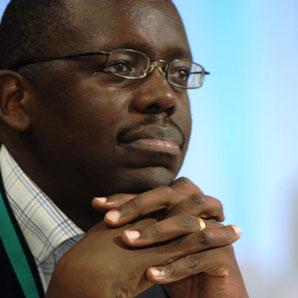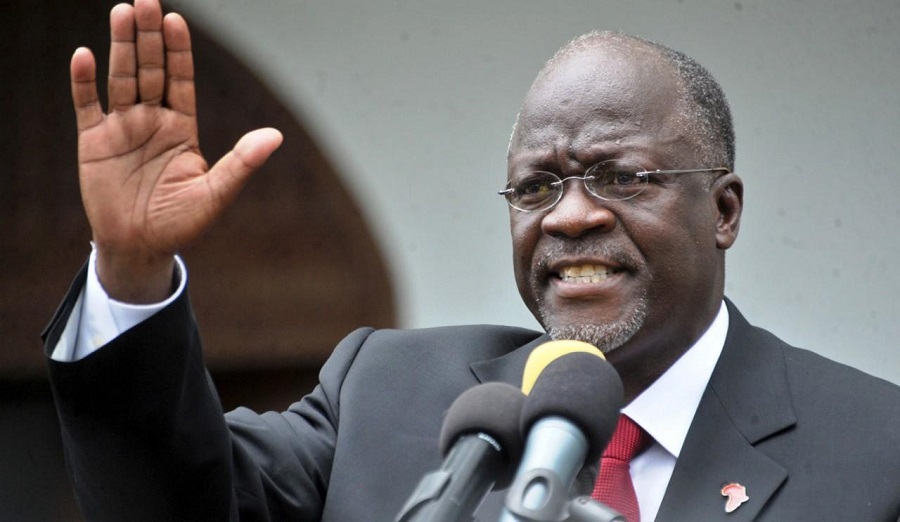President John Pombe Magufuli has surprised and delighted many people in Tanzania and beyond, by some of the actions he has taken in his first few months as president. Together with his Prime Minister, Kassim Majaliwa, the President swept through the port and tax authorities, uncovering widespread corruption and unpaid taxes, leaving a trail of more than 60 sacked and suspended senior officials behind them.
The president has clamped down hard on unnecessary public expenditure, dramatically reducing foreign travel, out-of-office workshops and meetings.
The Tsh 4.0 billion saved from cancelling official national Independence Day celebrations on December 9, 2015 was spent widening a Dar road from Morocco to Mwenge that I now thoroughly enjoy every day. His “bulldozer” nickname resonates very well. Getting to grips with corruption and tax evasion is central to the good governance agenda. So does holding public servants accountable for their performance and demanding efficient use of public funds.
Allow me to digress. As a foresight practitioner, I spend many of my waking hours imagining the future of society in Tanzania and beyond. I devour books on metaphysics and monetary policy, consume all manner of broadcast media, explore, with the help of my daughters, a variety of new gadgets, and join many on- and off-line conversations with maverick thought-leaders. I constantly scan the horizon for powerful trends, tiny clues and early signs of deep change. My instinct for self-preservation leads me to monitor any new risks that we collectively face as Tanzanians. I then imagine a variety of plausible futures and use them to mentally rehearse a range of possible responses and outcomes.
The Picture of Now
I have been doing some trend monitoring and horizon scanning since November 5, 2015 when President Magufuli took the oath of office. As the first seven months of his government come to a close, I am detecting some early warning indicators about his administration’s approach to governing and its apparent nervousness about openness, transparency and citizen participation – all of which are pillars of the strong, vibrant people-centred and prosperous democracy that Tanzanians want by 2025.
The most visible early warning indicator is the administration’s engagement with the media. One previously suspended newspaper, The EastAfrican, was allowed to start publishing again in the country, but another, Mawio, has been permanently banned, using legislation that did not give the paper a chance to defend itself in court. Secondly, government has stopped the live radio and television broadcasts from parliament, effectively shielding the people’s representatives from public scrutiny as they debate their voters’ issues. Third, a long-awaited genuine public consultation on new laws to regulate the media seems to have stalled. These moves militate against citizens participating in their own government. They risk pivoting public servants’ accountability away from citizens and towards their bosses, and stifling official transparency.
How do I reconcile President Magufuli’s work against corruption and for efficiency with an apparent suspicion of a more open civic space? What might the next 1,600 days bring? I see three possibilities.
“Father knows best”
First, it could be that the President and the Prime Minister are confident that they can personally storm through government uncovering and dealing decisively with problems. This kind of action has already proven effective at getting people’s attention, and indeed at solving some long-entrenched problems. But taken at face value, it might undermine the longer term vision of a Tanzania whose future ought to be anchored by strong institutions instead of charismatic personalities. It also hints at a level of sensitivity to criticism that may lead to anti-democratic restrictions on the space for public debate. Such a paternalistic “Father Knows Best” posture may produce an initially popular benevolent authoritarianism in the short term. But without a deep sense of self-awareness and a healthy dose of moderation on the part of the President, it can turn into bitter despotism.
“It is us against them”
Second, it could be that President Magufuli and Prime Minister Majaliwa want to engage the public in a joint effort to combat corruption, incompetence and mismanagement in the civil service. They display a lack of trust in the machinery of government that they inherited, perhaps justifiably so given their own personal experience at its highest levels. They are eager to combine top-down authority with bottom-up citizen pressure to make public officials more accountable. This “it is us against them” approach has captured the imagination and early support of ordinary Tanzanians.
But, the risk is that civil servants – the ‘them’- take serious offence at being scapegoated as lazy, dishonest and incompetent. There are hundreds of thousands of dedicated, hardworking, long-suffering teachers, nurses and administrators across government. If they start to feel that their own government is not treating them fairly, they could deploy that uniquely Tanzanian mgomo baridi (go-slow) and quietly strangle all efforts at deeper, lasting reform.
“We are on this journey together”
Third, it could be that President Magufuli has detected a rare opportunity to create a unifying “We are on this journey together” ethos, by nurturing a powerful sense of national pride and purpose. If so, he should invite both citizens and civil servants to join him in a collective effort to provide honest feedback on how things are going and to bring fresh ideas for what should be done, and how it should be done. This would be a joint endeavour that does not tolerate corruption or wasteful expenditure, but one that is open to new ideas and robust public debate, even when that debate involves criticism of government itself.
Time to open up…
It is still early in the 1,825 days of his first term, but President Magufuli can start to embed an open and inclusive approach to his administration. One place to start would be the media and information. That means welcoming the live TV cameras back into Parliament. It means reaching out to a wide group of stakeholders to turn the Media Services Bill into a law that that empowers and liberates rather than restricts. It means passing a strong Access to Information Bill that opens up the workings of government to all citizens. A wise judge once noted that ‘sunlight is the best disinfectant.’ President Magufuli should not shy away from opening up government in order to permanently cauterize the rot he has found within it.
One thousand six hundred days is plenty of time for President Magufuli to show that, in addition to being an effective bulldozer, he is also an imaginative architect, an adept designer and a master-craftsman who inspires citizens to reach for a higher prize. Tanzanians know that he can build roads. They are eager for him to show that he can also forge a new, energizing and inclusive sense of national purpose.
Note from AFLI: This piece has been posted in print in Tanzania and can also be read in full at the Open Government Partnership website.


Report